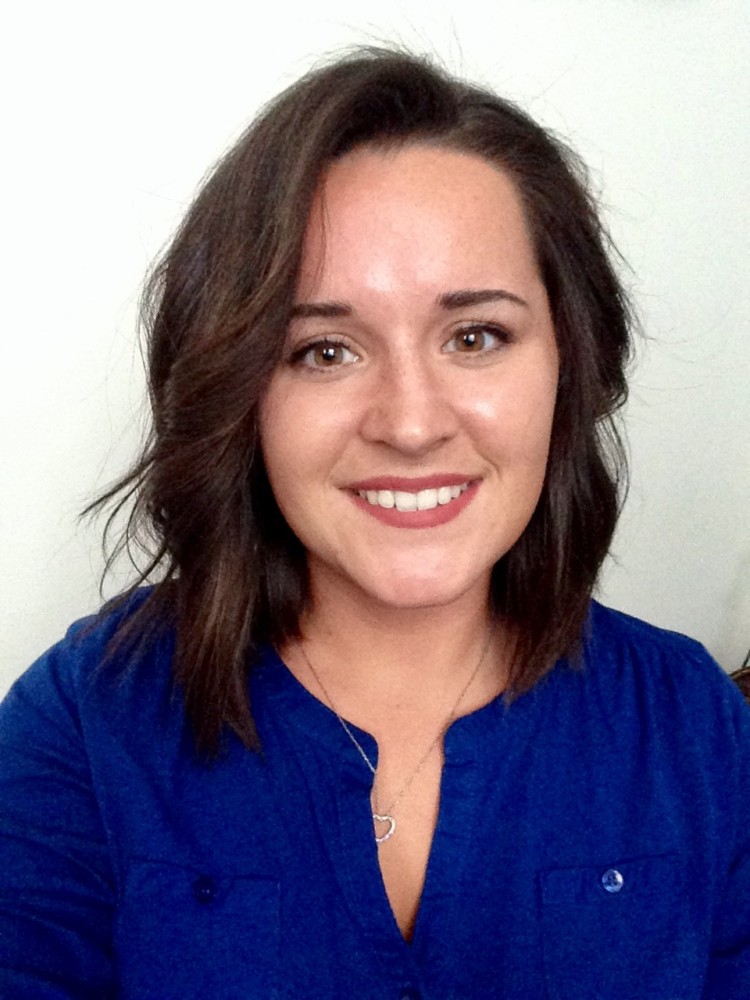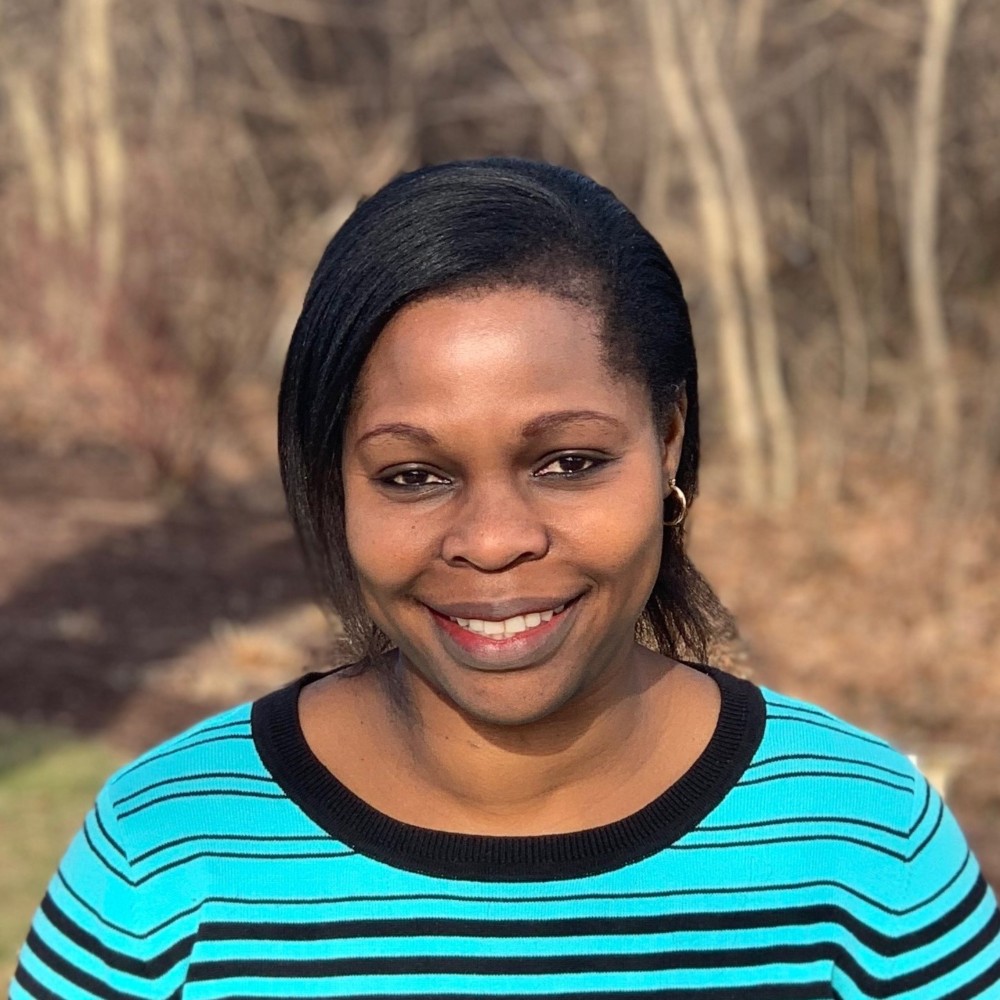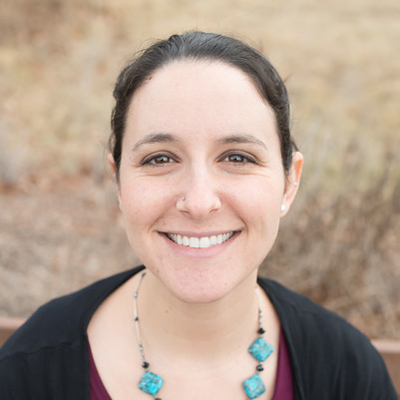A “Giving Profession”
Mental health professionals and other human services or nonprofit workers dedicate their careers to helping others heal, succeed, and thrive. Meet some of JFS Delaware’s talented, compassionate therapists and learn what inspired them to pursue a profession all about giving back and serving our community.
Rebecca McAdams, M.Ed., NCC
 JFS: What inspired you to become a therapist?
JFS: What inspired you to become a therapist?
RM: It only takes one person to positively impact someone’s life permanently, and I want to be that person to help people process, cope, and heal. Therapy is important in the empowerment and wellness of someone’s life and it is a privilege to be part of their journey.
JFS: Tell us about a unique therapeutic approach you use. Why do you like it?
RM: My favorite therapeutic approaches involve creative therapies like art, music, and sand tray interventions. Seeing clients work through their experiences in artistic and freeing ways—seeing their enthusiasm and engagement in their own therapeutic work—is incredibly rewarding.
JFS: If you hadn’t become a therapist, what other dream job might you have pursued?
RM: I would love to be a park ranger, helping preserve nature and the animals within it! I love going hiking and doing what I can to keep nature beautiful, safe, and clean. And I would look super official in uniform!
Susan Nakaweesa, MS CMHC
 JFS: What inspired you to become a therapist?
JFS: What inspired you to become a therapist?
SN: Working as a teacher, I encountered several children living in dysfunctional families and homes. I would do my best to step in and support them, but I couldn’t do enough; becoming a therapist allowed me to have a greater impact to help people through their traumas.
JFS: What about your work do you find the most rewarding?
SN: Inspiring and seeing any effort by my clients towards positive change—no matter how big or small—makes my work very rewarding. Just laying the foundation for healing can be a huge accomplishment…Rome wasn’t built in one day.
JFS: Do you have a favorite motivational quote to share with the readers?
SN: “Do not watch the clock; do what it does. Keep going.” – Sam Levenson
JFS: Can you bust any therapy myths?
SN: Some may think, as mental health professionals, therapists do not need therapy…but oh yes, we do! We are as human as anyone else.
Sarah Robins, LCSW
 JFS: What about your work do you find the most rewarding?
JFS: What about your work do you find the most rewarding?
SR: Whether it be processing trauma, learning new behavior management skills, or negotiating new boundaries and communication, witnessing families reconnect and learn to function and love each other again is one of the most powerful and rewarding experiences of this work.
JFS: Why do you think therapy important?
SR: Therapy provides a space to explore, reflect, practice, and heal. Therapy gives us ways to look underneath the surface and build compassion for our most vulnerable and precious parts.
JFS: Do you have a favorite motivational quote to share with the readers?
SR: “And the day came when the risk to remain tight in a bud was more painful than the risk it took to blossom.” – Anais Nin
JFS: Can you bust any therapy myths?
SR: Going to therapy doesn’t mean you are weak. In fact, it’s quite the opposite—therapy challenges us to look within and acknowledge our wounds, which takes bravery, courage, and self-compassion.
Pamela Stearn, LCSW, CADC, CCDP
 JFS: What inspired you to become a therapist?
JFS: What inspired you to become a therapist?
PS: After taking an introductory course during my senior year of high school, I discovered psychology sparked an interest in me like nothing else ever had. I majored in psychology in college and have been working in the field ever since!
JFS: What about your work do you find the most rewarding?
PS: I find it incredibly rewarding to see a client gain insight or awareness about themself that helps them live a more fulfilling and authentic life. This is also why I think therapy is important—it creates the space for that growth to happen.
JFS: Tell us about a unique therapeutic approach you use. Why do you like it?
PS: I believe effective therapy begins with the connection between therapist and client; finding the best therapeutic approach for each client happens in that space. I often utilize mindfulness based cognitive behavioral therapy to introduce clients to ways they can better understand their thought patterns and how those patterns influence to their feelings and behaviors.
JFS: If you hadn’t become a therapist, what other dream job might you have pursued?
PS: I often say that I was born a social worker and can’t imagine being anything else! I entertained the idea of being a high school English teacher or a writer, but I couldn’t be happier with my decision to become a social worker; this feels like how I’m meant to contribute to the world.
Start your therapy journey with JFS today!
Contact us at 302-478-9411 ext. 306 or complete our online intake form to get started.

